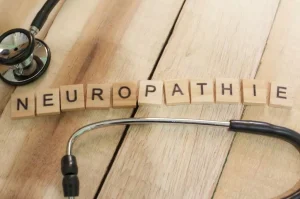What Are the 6 Stages of Addiction Recovery?

Someone at the contemplation stage is generally more open to receiving information about the possible consequences of their addictive behavior. They may be open to learning about different strategies for controlling or quitting the addictive behavior, without committing to a specific approach or even promising to make a change. At this point, you are not ready to take action and make a change in your life. If you are drinking too much, alcohol is causing problems for you in your life, but you have no intention to look for a way out yet. If you’re a heavy drinker, you’re at an increased risk of developing certain diseases, such as cancer, heart disease, and stroke.
Stage 4: Action
- The acute alcohol withdrawal timeline and process looks different for everyone, and the symptoms can range from uncomfortable to potentially dangerous.
- This condition affects a greater number of people than one might realize.
- During the precontemplation stage, a person is feeling the effects of their addiction but is not interested in changing their habits.
- This crucial step sets the foundation for long-term sobriety and can significantly increase the chances of successful recovery.
- Addiction Resource aims to provide only the most current, accurate information in regards to addiction and addiction treatment, which means we only reference the most credible sources available.
The stages of alcohol rehabilitation provide a roadmap for individuals on their journey to recovery. Each stage serves a specific purpose and builds upon the previous one, creating a solid foundation for lasting change. This stage of change can present new challenges as a person navigates life after treatment or without stages of alcoholic recovery the regular support they may have had previously. Participating in aftercare programs can be a beneficial way to maintain sobriety and continue the process of recovery. You need to be ready to make the necessary changes to stop drinking. Then, you can work with your doctor to find the best treatment plan for you.
- Most commonly, people who relapse while in recovery will bounce back to the contemplation stage rather than the precontemplation stage, meaning that they don’t completely start over.
- SMART Recovery uses a cognitive-behavioral approach to help individuals develop the skills and strategies needed to overcome addiction.
- Seeking online alcohol treatment is an act of self-care, and something to be proud of.
- It’s more common for people to move back and forth through the stages of change as they tackle addiction.
Do You Need Help? 10 Warning Signs of Alcoholism

Recognizing the need for change often involves reflecting on the negative consequences that alcohol abuse has had on various aspects of life, such as relationships, work, health, and overall well-being. It may also involve identifying patterns of behavior that indicate alcohol dependence. SMART Recovery is another type of support group that focuses on self-empowerment and self-reliance.

Now is the time to take action.
It is characterized by an ongoing struggle to control the amount and frequency of your drinking, despite the negative physical, social, or professional consequences it causes. Other terms for AUD include alcohol addiction, alcohol dependence, and alcoholism. Clinicians classify AUD as mild, moderate, or severe depending on how much the condition affects a person’s life. As individuals progress through the rehabilitation stage, they become better equipped to address underlying issues and develop healthier coping mechanisms. The next stage, maintenance and relapse prevention, focuses on sustaining sobriety and establishing a support network for ongoing recovery. It’s important to remember that detoxification is just the initial step in the overall process of alcohol rehabilitation.
It is often a long and bumpy path, and relapse is nearly inevitable—but that doesn’t spell the end of recovery. In addition to learning how to say no to alcohol in social settings, the recovery process typically requires looking inward. Exploring triggers will help break down the reasons you wanted to drink in the first place, making your recovery more sustainable. Working with a specialized therapist in alcohol therapy can be especially helpful for identifying triggers, working through past traumas, and developing a plan for when triggers do arise. First, it’s important to understand the signs of both acute and post-acute withdrawal.
What Is the Drug and Alcohol Addiction Recovery Process?
You might have a lot of anxiety, feel irritable, lose interest in life, go through mood swings, and worry that you won’t be able to have a successful recovery. You might feel fine for days or weeks, and then suddenly, they hit you like a tsunami. Research has identified relapse patterns in adolescents and adults recovering from addiction. In one study, two-thirds of the adults relapsed in social situations in which they experienced urges and temptations to drink or use.
Rehabilitation typically involves a combination of addressing underlying issues and participating in behavioral therapy and counseling. Behavioral therapy and counseling are integral components of the rehabilitation stage of alcohol recovery. These therapies help individuals develop new coping skills, modify harmful behaviors, and establish healthier thought patterns. The goal of behavioral therapy is to identify triggers and develop strategies to manage cravings and prevent relapse.
Secular Organizations for Sobriety (S.O.S.)


Join The Discussion